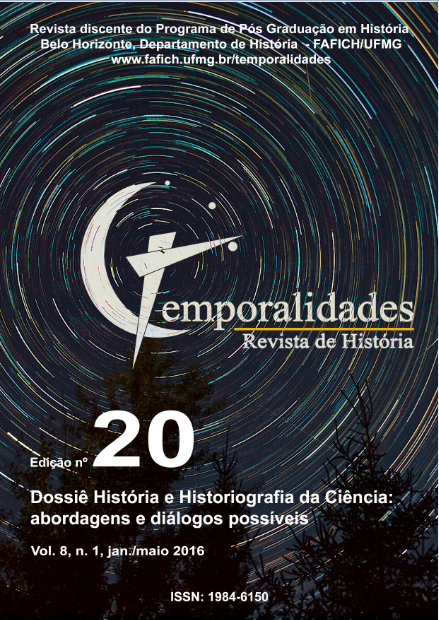Rita de Cássia: obediência e matrimônio em uma narrativa hagiográfica setecentista. (1714)
Palavras-chave:
matrimônio, Rita de Cássia, Hagiografia PortuguesaResumo
Durante a Idade Moderna portuguesa, a hagiografia assumiu um importante papel na catequização dos fiéis, apresentando não apenas experiências místicas e sobrenaturais dos santos e beatos da Igreja Católica, mas também conferindo valores de feminilidade e masculinidade no seio da hierarquia social e familiar. O presente artigo propõe analisar uma narrativa hagiográfica do início dos setecentos acerca de Rita de Cássia, sob a luz do conceito de tecnologia de gênero proposto por Teresa de Lauretis.
ABSTRACT: During the Portuguese Modern Age, the hagiography assumed an important role in the catechesis of the faithful, presenting not only mystical and supernatural experiences of saints and blessed of the Catholic Church, but also giving femininity and masculinity values within the family and social hierarchy. This article proposes to analyze a hagiographic narrative of the early eighteenth century about Rita of Cascia, in the light of the concept of gender technology proposed by Teresa de Lauretis.
KEYWORDS: Marriage; Rita of Cássia; Portuguese Hagiography.
Downloads
Downloads
Publicado
Edição
Seção
Licença
O(A) autor(a), para fins de submissão à revista Temporalidades, deve declarar que o trabalho aqui submetido é de autoria do mesmo e nunca foi publicado em qualquer meio, seja ele impresso ou digital.
O(A) autor(a) também declara estar ciente das seguintes questões:
Os direitos autorais para artigos publicados na Temporalidades são do autor, com direitos de primeira publicação para o periódico;
Em virtude de aparecerem nesta revista de acesso público, os artigos são de uso gratuito;
A revista permitirá o uso dos trabalhos publicados para fins não-comerciais, incluindo direito de enviar o trabalho para bases de dados de acesso público.
A Temporalidades adota a licença internacional Creative Commons 4.0 (CC BY).











